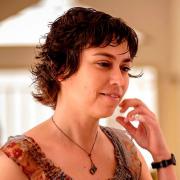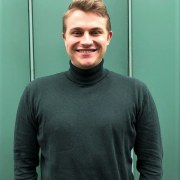Science and tourism challenges and opportunities for science centres and museums
Reflect on practices and methodologies for creating new tourist products associated with scientific tourism, considering the need to structure, qualify, promote and monitor tourist experiences based on a deeper knowledge of local resources. Tourism activities are one the most significant industries in the world, therefore it is vital to rethink what are the forms of intervention that Science Museums should have with it. Developing Natural and Cultural Heritage as a Science Tourism product, in these fields, are sustainable resources. Simultaneously, requires the mediation of Science Museums between scientists and the tourism professionals and local policy makers. Scientific tourism is understood as enhancing the diversification of the tourism product and, in parallel, it is consistent with the deepening of the tourist experience based on new products associated with new players (stakeholders), aimed at new customers (tourists) and the emergence of new needs.
Outcomes: what will participants get from this session? Skills, knowledge, experience etc.
Science and educational tourism are trends in today’s world and it can be defined as a programme in which participants travel to a location with the primary purpose of engaging in a learning experience directly related to the location.
Science Museum should regard Science Toursm as new niches of opportunities and different ways of acomplishing its mission.
Session speakers
Science Communicator Manager
The SciTour research project stands at the nexus between Tourism, Science, Communication and Education. The project has gathered a consortium of researchers, local municipalities and other stakeholders with the goal of examining the natural and cultural heritage of the Western Algarve, developing tools and mechanisms to productise it as a science tourism experience. By doing so the project is diversifying the available tourism offer and building upon the existing strengths and infrastructure of the region.
VRSciT project consists of educational virtual visits to places of cultural, social and natural interest from Portugal, Spain, Italy and Lithuania, using immersion and interaction techniques in Virtual Reality. The adoption of VR technology enables visitors to experience high educational value through digitisation. VRSciT aims to explore new approaches in educational tourism, with 3D modeling in conjunction with 360° immersive VR environments to build innovative virtual educational scenarios.
The Neanderthal Museum is located in the middle of the Neandertal nature reserve, which also houses the site where the very first Neanderthal was found. With this special constellation, the Neandertal attracts visitors with two very different interests: Culture enthusiasts and nature lovers. We aim to give visitors access to both the natural and cultural heritage of the Neandertal by working together with local stakeholders from tourism, the nature conservation association and science. Based on existing data and current visitor research the museum and it´s local stakeholders are developing a new sub-brand to attract new groups of visitors: The Neanderthal World of Discovery



